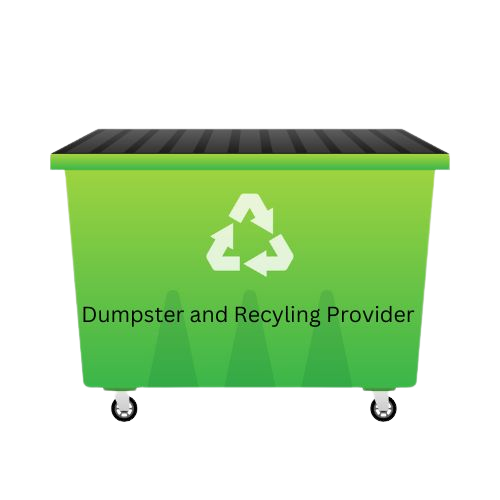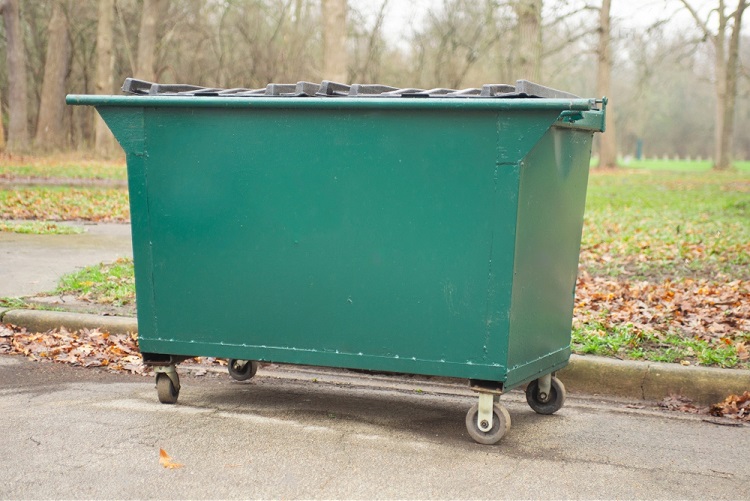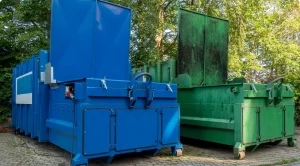In a world that’s becoming increasingly conscious of waste management, mastering dumpster rentals is a skill that can make a significant difference. Whether you’re a homeowner tackling a major renovation, a business owner handling regular waste disposal, or a community organizer planning an event, efficient dumpster rental can help you save time, money, and resources while minimizing your environmental footprint. In this guide, we’ll walk you through the ins and outs of dumpster rentals, helping you become a dumpster rental pro.
I. Introduction
A. Why Dumpster Rentals Matter
Waste management is a pressing issue in today’s world. Proper disposal of waste is not just a legal requirement but also crucial for the environment. Inefficient waste handling can lead to pollution and health hazards, not to mention the financial burden it can impose on individuals and organizations.
B. Hook: The Power of Dumpster Rentals
Imagine being able to effortlessly handle your waste disposal needs, save money, and contribute to a cleaner planet. That’s the potential of mastering dumpster rentals.
C. Blog’s Purpose
The purpose of this blog is to empower you with the knowledge and skills needed to make the most of dumpster rentals. We’ll cover everything from assessing your needs to finding the right rental service and mastering eco-friendly practices.
II. The Basics of Dumpster Rentals
A. Types of Dumpsters
Dumpsters come in various sizes and types. They can be open-top, closed-top, roll-off, or stationary. Understanding these variations is essential in choosing the right one for your needs.
B. Common Uses
Dumpsters are not just for construction sites. They are used in various scenarios, such as home cleanouts, landscaping projects, business waste disposal, and event cleanups.
C. Importance of Efficiency
Efficient dumpster rentals can save you time and money, making waste management a breeze rather than a burden.
III. Assessing Your Dumpster Needs
A. Scope of Your Project
Before renting a dumpster, you need to assess the scale of your project. Are you cleaning out your attic, renovating your kitchen, or organizing a community event? The scope will determine the size and type of dumpster you require.
B. Choosing the Right Size
Selecting the right dumpster size is critical. A dumpster that’s too small will lead to overflow issues, while one that’s too large will result in unnecessary costs.
C. Factors to Consider
Consider the type of waste you’ll be disposing of, the duration of your project, and how often you’ll need waste pickups.
IV. Finding the Right Dumpster Rental Service
A. Researching Local Companies
Start by researching local dumpster rental companies. Check their websites, reviews, and customer testimonials.
B. Reading Reviews
Reading reviews can provide valuable insights into the quality of service, pricing, and customer satisfaction.
C. Comparing Prices and Services
Don’t settle for the first rental company you find. Compare prices and services to ensure you get the best deal.
V. Dumpster Rental Regulations
A. Compliance with Regulations
It’s essential to comply with local regulations when renting a dumpster. Failure to do so can result in fines and legal complications.
B. Common Restrictions
Learn about common restrictions, such as prohibited waste types and placement guidelines for dumpsters.
C. Tips for Navigating Legal Aspects
We’ll provide you with tips on how to navigate the legal aspects of dumpster rentals to ensure a smooth experience.
VI. Cost-effective Dumpster Management Tips
A. Strategies for Optimizing Space
- Compact Your Waste: Break down large items to maximize space and minimize air gaps.
- Layering Technique: Place heavier items at the bottom and lighter ones on top for efficient use of space.
- Pack Strategically: Arrange items in a way that minimizes voids within the dumpster.
B. Time Management for Cost Savings
- Plan Ahead: Schedule your dumpster rental for the exact duration needed to avoid unnecessary fees.
- Optimal Filling: Fill the dumpster gradually as your project progresses, rather than all at once.
C. Negotiating for Better Deals
- Ask for Discounts: Inquire about discounts for extended rentals or off-peak seasons.
- Bundle Services: If you need multiple dumpsters or additional services, negotiate a bundled package for better rates.
VII. Eco-Friendly Dumpster Practices
A. Recycling Options
- Separate Recyclables: Ensure that recyclable materials are separated from general waste.
- Choose Recycling Centers: Opt for dumpster rental companies that prioritize recycling at specialized centers.
B. Environmentally Friendly Disposal
- Proper Disposal of Hazardous Materials: Learn how to dispose of hazardous waste responsibly.
- Donate or Reuse: Consider donating usable items or repurposing materials to reduce landfill waste.
C. Importance of Sustainability
Highlight the impact of sustainable waste management on the environment and how it contributes to a healthier planet for future generations.
VIII. Troubleshooting Common Dumpster Rental Issues
A. Dealing with Overfilled Dumpsters
- Avoid Overfilling: Stick to the dumpster’s fill line to prevent overage charges.
- Request Additional Pickups: If needed, arrange for extra pickups to manage excess waste.
B. Addressing Delays and Scheduling Conflicts
- Clear Communication: Communicate your project timeline clearly with the rental company.
- Plan for Contingencies: Anticipate potential delays and factor them into your rental period.
C. Handling Unexpected Challenges
Share tips on dealing with unexpected issues like inclement weather, equipment malfunctions, or sudden changes in project scope.
IX. Real-life Dumpster Rental Success Stories
Share inspiring stories of individuals or businesses that mastered dumpster rentals, emphasizing the positive outcomes and lessons learned from their experiences.
X. Conclusion
Recap of Key Points
Summarize the essential tips and insights shared throughout the blog, reinforcing the importance of mastering dumpster rentals.






